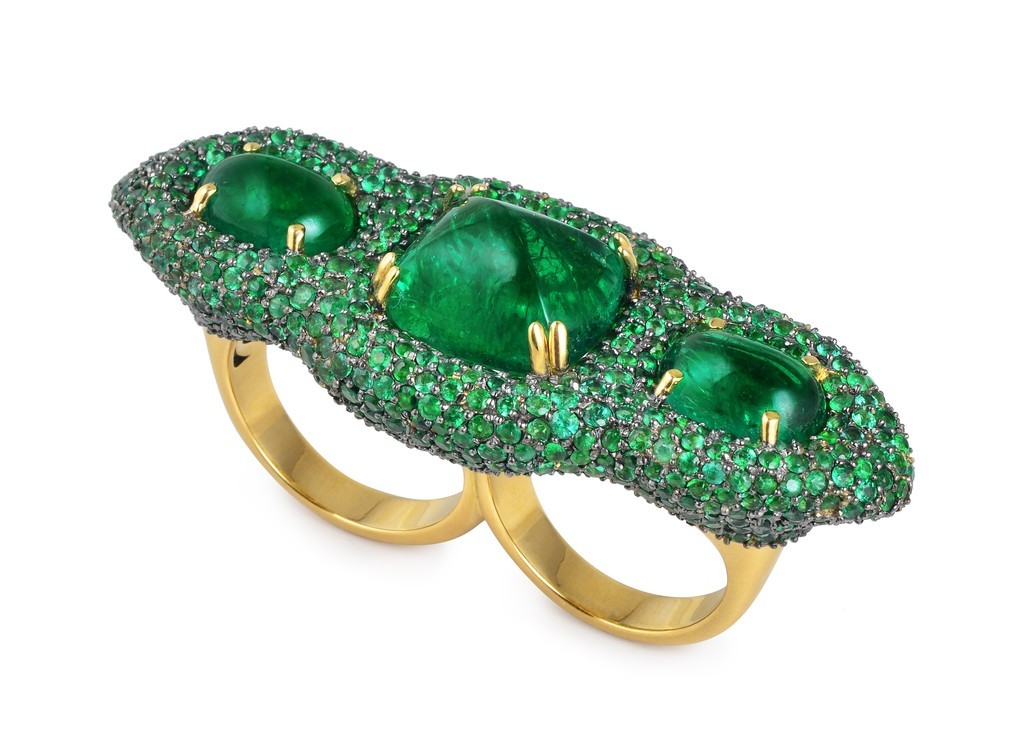A warning that Gemfields (GEM:AIM) may no longer be able to sell its emeralds outside of Zambia has shaken the share price, falling 12.6% to 26p. The gemstones producer has sold its entire production from its Kagem mine outside of Zambia since 2009. Sales restrictions could have a significant impact on revenue and potentially damage the emeralds industry where Zambia accounts for 20% of global supplies.
Zambia's mining minister implied on Friday (5 Apr) that emeralds from any deposit in the country may soon have to be sold in the domestic market. A statement (click here) from the ministry is indicative of many countries in Africa and South America where governments want locals to have a greater financial share of any natural resources wealth.
In light of this statement, it is now understandable why Gemfields last month (28 Mar) switched the location of its next emerald sale from Jaipur, India in March to Lusaka, Zambia between 15 April and 19 April.
Gemfields says it has previously received verbal requests to include Zambia as one of the destinations for its international auction circuit, hence why the next auction will be in the country. Yet the subsequent auction is scheduled to take place in Singapore in June.
The miner says it hasn't yet 'participated in or been invited to any industry or stakeholder consultation process' regarding the implied sales restrictions. It is clearly seeking open, transparent discussions with the government - particularly as they own 25% of the Kagem mine, thereby benefiting not just from tax income but also royalty income.
Chief executive officer Ian Harebottle says: 'Kagem's repatriation of foreign currencies, payments of Zambian corporation tax and gemstone royalties stand at all-time highs and we believe the same to be true for total tax and royalty receipts from the Zambian gemstone sector. This record of success and growth should not be put at risk.'
Gemfields in February appointed Hollywood actress Mila Kunis as its global brand ambassador. This was a real coup for the company, attracting significant publicity and raising the profile of the business. It came off the back of buying luxury goods brand Faberge in January, adding retail outlets alongside the mining business.
Canaccord Genuity reckons that the proposed sales restrictions in Zambia would impact Gemfields' lower value stones the most. It says: 'Lower quality auctions have historically been held in Jaipur, the main market for stones of this type. If all auctions are held in Zambia going forwards it is unlikely that the company will attract the same number of bidders, potentially impairing a competitive bid process, in our view. Recently, lower value auctions have been ~17m carats per auction vs ~1m carats per auction higher quality stones. On our numbers, lower quality emerald stones represent 20-25% of revenues.'
Zambia's mining ministry wants to give small-scale miners access to a market where they get a 'fair return on their produce.' It says: Most small-scale miners are forced to sell their emeralds to illegal buyers at depressed prices because of (a) lack of a formal market within the country.'
It is understood that Gemfields four years ago chose to sell its goods outside of Zambia in order to attract a wider audience at its auctions and therefore get the best prices.
The big question remains whether Gemfields' usual buyers can purchase goods in Zambia and then freely export them to other countries. The mining ministry's statement makes no reference to export restrictions.





